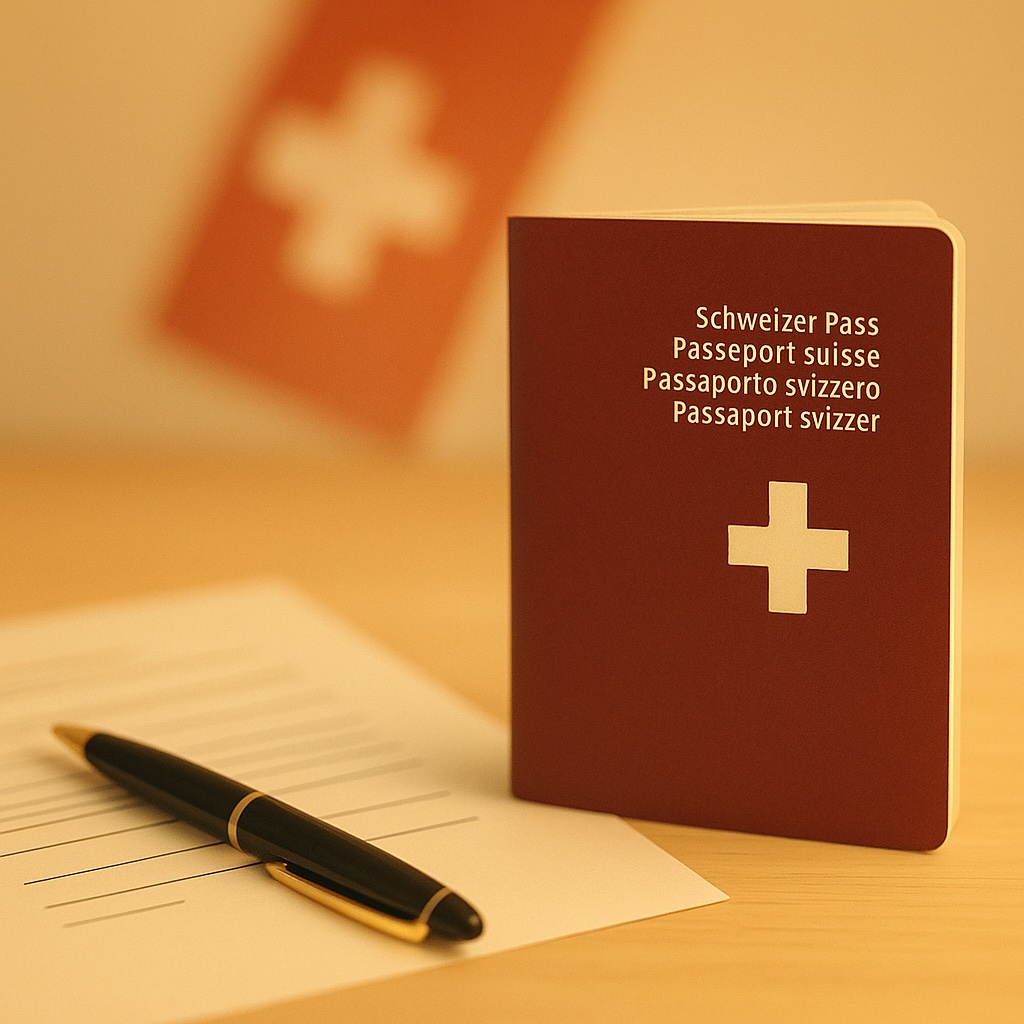Learn the step-by-step process to apply for Swiss citizenship, from meeting residency and language requirements to submitting your application and attending the naturalization interview.
Why Choose Swiss Citizenship?
Choosing Swiss citizenship opens a wealth of advantages that extend far beyond the picturesque landscapes and world-class quality of life. As a full Swiss national, you acquire complete political rights: the ability to vote in federal, cantonal, and municipal elections, to stand for public office, and to have a direct say in shaping local and national policies. Beyond democratic participation, Swiss passport holders enjoy extensive visa-free or visa-on-arrival access to over 180 countries, making business trips, leisure travel, and emergency visits seamless. Switzerland’s reputation for safety, neutrality, and economic stability means citizens benefit from robust social services, high-quality healthcare, and a strong education system. Gaining citizenship also cements your connection to a diverse cultural tapestry, fostering a deep sense of belonging in a multilingual nation where French, German, Italian, and Romansh coexist. Whether you have already made Switzerland your home through long-term residency or are married to a Swiss citizen, mastering the naturalization requirements is the crucial first step toward unlocking these enduring personal and professional benefits.process is key to a successful application.
1. Check Your Eligibility
To qualify, you generally need:
• A valid C-permanent residence permit (for at least 3–5 years, depending on canton)
• A minimum of 10 years’ residence in Switzerland, with at least 3 of those years in the last 5 years
• Proof of integration into your local community, respect for Swiss law, and adherence to Swiss values
• Language proficiency in the local language—usually B1 spoken and A2 written in German, French or Italian
• A clean criminal record and no serious financial debts
2. Strengthen Your Integration
Swiss authorities look for genuine ties to your municipality. You can demonstrate integration by:
• Participating in local clubs, volunteer work or neighbourhood events
• Enrolling in civic courses on Swiss history, politics and geography
• Maintaining stable employment and paying taxes on time
• Showing respect for Swiss traditions and customs in daily life
3. Achieve the Required Language Level
Most cantons require B1 level (intermediate) for speaking and A2 level for writing. To prepare:
• Join group classes at your local Migros Klubschule or Volkshochschule
• Use self-study apps like Duolingo, Babbel or Pimsleur alongside conversation meetups
• Take a recognized exam (e.g. Goethe-Zertifikat B1 for German) well before you submit your application
4. Gather All Necessary Documents
Common documents include:
• Valid passport and C-permit photocopies
• Birth certificate (translated and apostilled)
• Proof of language proficiency certificates
• Evidence of civic integration (course certificates, volunteer letters)
• Tax statements and pay slips for the last three years
• Clean criminal record extract from each canton you’ve lived in
5. Submit Your Application to the Commune
Each municipality has its own forms and fees (ranging from CHF 500 to CHF 1 500). You will:
• Complete the naturalization form accurately
• Attach all certified documents and translations
• Pay the application fee as directed by your Gemeindeverwaltung or Stadtkanzlei
• Receive a confirmation with an estimated timeline (usually 12–24 months)
6. Prepare for the Interview and Tests
Most applicants attend a local interview and may take a civic knowledge test. To succeed:
• Study Switzerland’s political system, federal structure and local canton specifics
• Practice common interview questions in your target language
• Dress smartly and arrive on time, showing respect for Swiss punctuality
7. Cantonal & Federal Review
After your commune’s positive recommendation, the canton and then the federal authorities review your file. They verify:
• Legal compliance (residency, language)
• Personal conduct (no serious offenses)
• Integration level in both local and cantonal contexts
8. Attend the Naturalization Ceremony
Once approved, you’ll be invited to a ceremony where you:
• Take the official citizenship oath or declaration of loyalty
• Receive your Swiss passport and citizenship certificate
• Celebrate becoming a full member of the Swiss Confederation
Final Tips for Success
• Start early: Begin language and civic courses at least 2–3 years before you reach the 10-year residency mark.
• Stay organized: Keep a dedicated folder (digital or physical) with all documents and receipts.
• Engage locally: Authentic community involvement often makes the difference in a close interview.
• Consult your commune: Rules vary by canton—always confirm specific requirements with your local authorities.
By following these steps and demonstrating genuine integration, you’ll be well on your way to obtaining Swiss citizenship and all its benefits.
Keywords: Swiss citizenship application, how to become Swiss, naturalisation Switzerland, Swiss nationality requirements, Swiss integration process.
